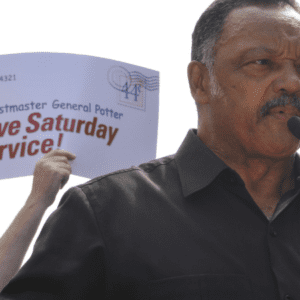August 20, 2014
USPS Guilty of Bad Faith, Unlawful Tactics
NLRB Orders Postal Service to Give APWU Info
The Postal Service engaged in delaying tactics that constituted an unlawful refusal to provide the APWU with information about the agency’s deal with Staples, an NLRB judge wrote in an Aug. 13 decision.
The USPS “did not want to provide the requested materials and was throwing straw arguments and roadblocks in the way,” Administrative Law Judge Eric M. Fine said.
The Staples deal established knock-off post offices in more than 80 of the office-supply stores in a trial program that the Postal Service and the retailer hoped to expand to all of the company’s 1,500 U.S. stores. The union has launched a boycott of Staples, which has been endorsed by the AFL-CIO, the American Federation of Teachers, AFSCME, SEIU, and many other major labor organizations.
Shortly after the program got underway in October 2013, the APWU requested detailed information about the terms of the arrangement as well as correspondence between the USPS and Staples. The Postal Service claimed the union had failed to establish the relevance of the information it sought and said the APWU’s request was “overly broad” and “burdensome.” Management also asserted that much of the information was confidential.
Just prior to the April 1 NLRB hearing, the Postal Service gave the APWU a heavily redacted copy of the agreement that obscured most of the details of its contract with Staples. Many of the deal’s 58 pages were completely blacked out.
In the decision, NLRB Judge Fine rejected each of the Postal Service’s claims and ordered the Postal Service to provide the APWU with most of the requested information, including thousands of emails between the USPS and Staples. He credited the testimony of the APWU witnesses, Clerk Craft Director Clint Burelson and Manager of Negotiations Support Phil Tabbita, while discounting the testimony of the Postal Service’s witnesses.
What Are They Hiding?
APWU President Mark Dimondstein said, “This decision demonstrates the desperate measures the USPS is willing to take to keep the details of its privatization deal a secret.
“The U.S. Postal Service is a national treasure that belongs to the people of the country,” he said. “Postmaster General Donahoe has no right to turn over its operations to a private company that is motivated by the bottom line – not service to the people.
“The secrecy prompts the question: What are they hiding?”
The APWU objects to the Staples deal because it privatizes the retail operations of the public Postal Service; transfers living-wage, union jobs to high-turnover, low-wage jobs, and degrades service to the public.
USPS Knew Exactly
In his decision, Judge Fine wrote, “I find that the Union has established the relevancy of the requested disputed information.” The program spans several states in major population centers, where “Staples employees perform a broad array of bargaining unit work creating alternative retail outlets.” He also pointed out that “a large number of the 80 to 84 Staples stores used in the pilot program were located less than a mile from the nearest post office.”
Fine rejected the Postal Service’s claims that the union’s request for information was overly broad and burdensome. “I find the Union’s request to be quite specific, and in need of no further explanation,” he wrote. “In fact, I have concluded that Respondent [USPS] knew exactly what the Union wanted but was merely opposed to providing the Union with the information.”
Fine also rebuffed management’s assertion that it could withhold much of the information the USPS said was confidential or proprietary. The Postal Service has until Sept. 10 to appeal the decision to the full NLRB.



